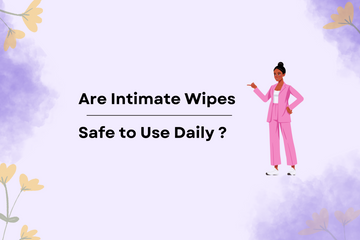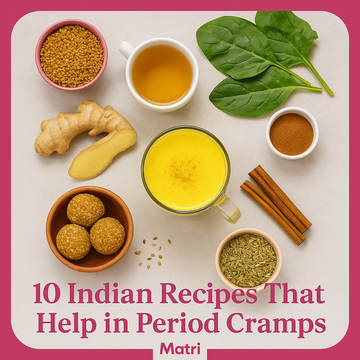As more women seek convenience and cleanliness in their daily hygiene routines, intimate wipes have gained popularity. These handy, pre-moistened cloths offer a quick way to freshen up the vaginal area—especially during periods, workouts, or travel. But the question remains: is the daily use of intimate wipes truly safe?
Let’s explore what gynecologists say, how often to use vaginal wipes, and the possible risks of overusing them. This guide will help you make informed decisions about feminine hygiene and protect your intimate health.
What Are Intimate Wipes?
Intimate wipes are specially formulated to clean the external vaginal area, also known as the vulva. Unlike baby wipes or facial towelettes, they’re typically pH-balanced, free from harsh chemicals, and enriched with soothing ingredients like aloe vera or chamomile. These wipes are designed to remove sweat, odor, and discharge while respecting the sensitive nature of feminine skin. They can be helpful in specific situations, such as menstruation, post-workout refreshment, or long travels without access to clean water. For more effective management of menstrual discomfort, consider using a Matri Pain Relief Device which targets cramps and provides relief alongside your hygiene routine.
Are Feminine Wipes Safe for Daily Use?
Yes, feminine wipes can be safe for daily use—if used correctly. According to gynecologist advice on wipes, occasional use, once a day, is generally harmless for most women. The key is choosing wipes that are fragrance-free, pH-balanced, and dermatologically tested. If you're looking for an alternative product that provides soothing protection, Matri Gel pads offer excellent comfort during menstruation, working in tandem with intimate wipes for a fuller care routine.
However, using them multiple times per day or relying on heavily scented products can disturb your natural flora. The vagina maintains its own protective pH and bacteria, and excessive cleaning may strip it of its defenses, leading to irritation or infections.
When Should You Use Intimate Wipes?
While regular cleansing with water remains the gold standard for feminine hygiene, there are times when wipes are practical and effective. Many women find them useful during menstruation, before or after physical activity, or while traveling. In these situations, wipes can offer a temporary solution to stay clean and comfortable.
For convenient and hygienic care, Use of Intimate Wipes can help you stay fresh during the day. Whether it's post-workout or during your period, they provide a quick and effective way to cleanse your intimate area.
What Happens If You Overuse Intimate Wipes?
The overuse of intimate wipes can lead to unwanted side effects. When used excessively, especially those with alcohol or synthetic fragrance, they may cause skin irritation, dryness, or disrupt the natural balance of bacteria.
The side effects of intimate wipes may include itching, redness, burning, or increased susceptibility to yeast infections. Even mild, gentle wipes can be problematic if used too frequently. This is why experts recommend using them in moderation, especially for women with sensitive skin.
How Often to Use Vaginal Wipes?
Experts suggest using vaginal wipes no more than once a day, especially during your period or when water isn't accessible. Using them two or more times daily should be avoided unless necessary. For instance, you might use a wipe during a long workday and once more after a workout, but regular overuse can be harmful in the long term.
If you find yourself needing to use them frequently, it may be worth examining your hygiene routine or discussing alternatives with your doctor.
Safe Feminine Hygiene Practices
Practicing good hygiene doesn’t require over-cleansing. In fact, many gynecologists stress that the vagina is self-cleaning, and daily washing with mild soap and warm water around the vulva is usually enough. Wipes are simply meant to supplement that care during specific circumstances. Safe feminine hygiene also includes wearing breathable cotton underwear, avoiding douching, and changing menstrual products regularly.
Using intimate wipes can be part of this care routine, but they should never be the only method of cleaning. For a complete solution to menstrual comfort, which offers a variety of products designed for feminine hygiene.
Choosing the Right Intimate Wipes
When selecting intimate wipes, always check the label for key indicators of safety. Choose wipes that are pH-balanced, free from alcohol, parabens, and artificial fragrance, and dermatologically approved. Natural ingredients like aloe or calendula can help soothe the skin and reduce the risk of reactions.
Avoid products that list strong chemicals, dyes, or preservatives. Your intimate area is delicate, and even trace amounts of irritants can lead to discomfort.
In exciting news, Matri Launches India’s Slimmest Dual-Mode Period Pain Relief Device, offering a groundbreaking solution for period pain. This innovative device, now available exclusively on, is featured in a recent press release, showcasing a new era of menstrual comfort.
Conclusion
The daily use of intimate wipes can be part of a safe hygiene routine if done in moderation with the right product. They’re convenient, effective, and helpful during times when water and soap aren’t accessible. However, overusing them or choosing products with harsh ingredients can cause more harm than good.
For long-term comfort and intimate health, balance is essential. Stick to dermatologist- and gynecologist-approved wipes, use them only when needed, and remember that nothing replaces the benefits of gentle water-based cleansing.
FAQs
1. Can I safely use intimate wipes every day?
Yes, but only once daily and with the right kind of wipe. Use pH-balanced, fragrance-free wipes to avoid disrupting your skin’s natural barrier or causing irritation.
2. What are the signs of irritation from overusing wipes?
Common signs include redness, itching, dryness, or a burning sensation. If symptoms persist, stop using the product and consult a healthcare provider to prevent further discomfort.
3. Are intimate wipes safe for use during periods?
Yes. Wipes can be especially helpful during menstruation for a quick refresh. Just ensure the product is gentle, unscented, and meant for sensitive areas.
4. Can I use intimate wipes more than once a day?
No. Regular use more than once daily is not advised unless necessary. Over-cleansing can strip the skin of natural oils and upset your vaginal pH balance.
5. Do gynecologists recommend using wipes regularly?
Yes and no. They recommend occasional use when needed, not as a daily essential. Water and mild soap are still the preferred method for daily cleansing.
6. Are there any long-term side effects of using feminine wipes?
Yes. If used excessively or if the wrong type is chosen, it can lead to chronic irritation, infections, or allergic reactions. Always follow usage guidelines.
7. Should I use wipes after workouts or outdoor activity?
Yes. Using wipes after sweating can reduce odor and discomfort, especially when a shower isn’t available. Just don’t make it a replacement for bathing.
8. Can intimate wipes be flushed down the toilet?
No. Most wipes aren’t biodegradable and can clog plumbing. Dispose of them properly in a trash bin to avoid damaging your drainage system.
9. Are feminine wipes okay for teens to use?
Yes, but they should be used sparingly and with parental guidance. Teenagers with sensitive skin should avoid heavily fragranced wipes to prevent irritation.
10. What should I do if a wipe causes a burning sensation?
Stop using it immediately. Rinse the area with cool water and avoid applying any further products. Seek medical advice if irritation continues for more than a day.







powxyu